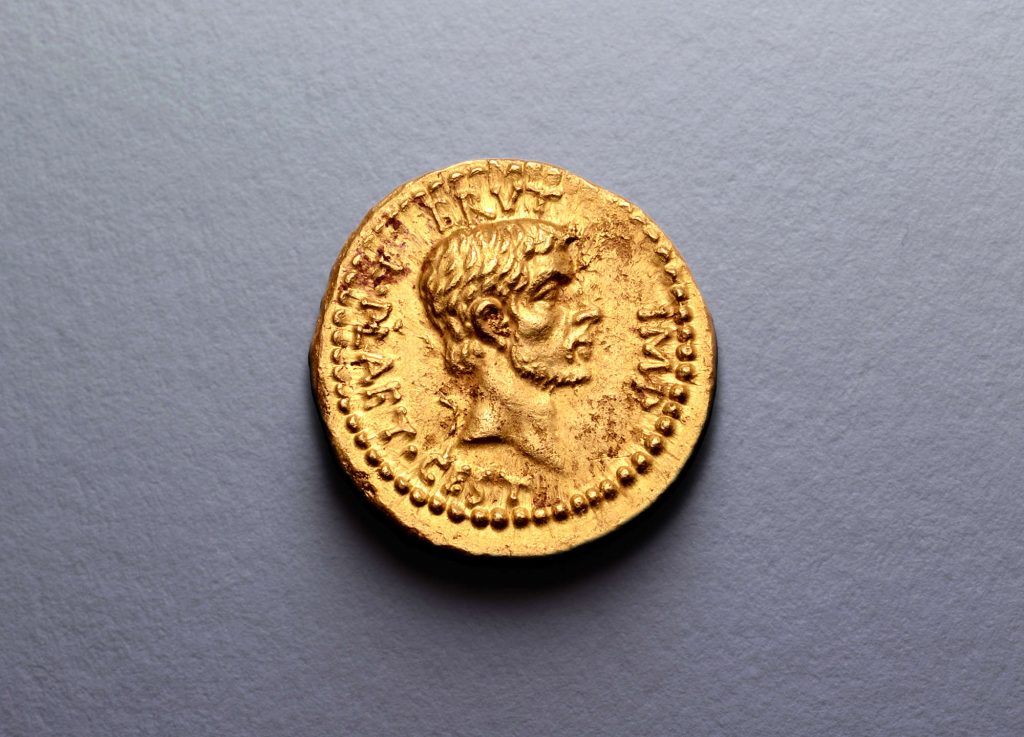Law & Politics
The World’s Most Valuable Coin, Previously Sold With Falsified Provenance, Has Finally Been Returned to Greece
A dealer was arrested this year for selling the ancient coin with falsified provenance documentation in 2020.

A dealer was arrested this year for selling the ancient coin with falsified provenance documentation in 2020.

Taylor Dafoe

One of the world’s rarest—and most valuable—ancient coins was repatriated to Greece this week, along with other artifacts. Together, the returned relics are estimated to be worth over $20 million.
The so-called “Eid Mar” (or “Ides of March”) coin was minted in 42 B.C.E. to commemorate the assassination of Julius Caesar and features an engraved portrait of Marcus Junius Brutus, the Roman senator who helped plot the murder. The coin is just one of three remaining examples cast in gold known to exist today.
Experts believe it was discovered, then illegally exported, from Greece more than a decade ago, according to the New York Times.
In an October 2020 sale hosted by the London-based auction house Roma Numismatics, the piece sold for nearly $4.2 million—a still-unbroken record for an ancient coin. But a probe led by the U.S. Homeland Security Investigations (HSI) agency subsequently found that the token was offered with falsified provenance documentation.
Richard Beale, Roma Numismatics’s owner and managing director, was arrested in January and now faces charges of grand larceny, criminal possession of stolen property, and conspiracy for his role in orchestrating the scheme. The auction house head has since been released on his own recognizance.
The unidentified American billionaire who purchased the coin at the 2020 event surrendered it to investigators in February, according to an announcement from the Manhattan District Attorney’s Office.
Today we announced the return of 29 looted antiquities worth over $20M+ to the People of Greece. Among the pieces was the extraordinarily rare Eid Mar Coin, which commemorates the murder of Julius Caesar. Learn more here: https://t.co/W1uwF7Xigb
— Alvin Bragg (@ManhattanDA) March 21, 2023
The coin was one of 29 relics handed over to Greek officials in a repatriation ceremony held at the Greek Consulate this week. Among the other returned items was a Bronze Calyx Krater, or two-handled vase, which dates back to 350 B.C.E, and a “Neolithic Family Group” of carved marble figurines, which hail from 5000–3500 B.C.E.
These objects were seized by officials this year from the collection of Shelby White, a prominent philanthropist and Metropolitan Museum of Art board member, and her late husband Leon Levy.
“Antiquities trafficking is a multibillion-dollar business with looters and smugglers turning a profit at the expense of cultural heritage, and Greece—long acknowledged as the cradle of Western Civilization—is especially susceptible to this type of criminal enterprise,” said Ivan Arvelo, an HSI Special Agent in Charge, in a statement. “These treasured artifacts date from as far back as 5000 B.C.E. and were a valued part of life in the ancient world.”
“We are honored to join our partners today in the repatriation of this priceless cultural heritage to the people of Greece,” Arvelo added.